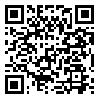Volume 7, Issue 5 (1-2015)
IJMEHM 2015, 7(5): 17-35 |
Back to browse issues page
Download citation:
BibTeX | RIS | EndNote | Medlars | ProCite | Reference Manager | RefWorks
Send citation to:



BibTeX | RIS | EndNote | Medlars | ProCite | Reference Manager | RefWorks
Send citation to:
Larijani B, Mobasher M, Tirgar S, Zahedi F, Tirgar S, Shariati F, et al . A Discussion on Some ontological components of death in Holy Quran. IJMEHM 2015; 7 (5) :17-35
URL: http://ijme.tums.ac.ir/article-1-5470-en.html
URL: http://ijme.tums.ac.ir/article-1-5470-en.html
Bagher Larijani1 
 , Mina Mobasher2
, Mina Mobasher2 
 , Samaneh Tirgar *
, Samaneh Tirgar * 
 3, Farzaneh Zahedi4
3, Farzaneh Zahedi4 
 , Soodeh Tirgar5
, Soodeh Tirgar5 
 , Farideh Shariati6
, Farideh Shariati6 
 , Banafsheh Karimi7
, Banafsheh Karimi7 
 , Fatemeh Mirzaei (Lotfi Azar)8
, Fatemeh Mirzaei (Lotfi Azar)8 


 , Mina Mobasher2
, Mina Mobasher2 
 , Samaneh Tirgar *
, Samaneh Tirgar * 
 3, Farzaneh Zahedi4
3, Farzaneh Zahedi4 
 , Soodeh Tirgar5
, Soodeh Tirgar5 
 , Farideh Shariati6
, Farideh Shariati6 
 , Banafsheh Karimi7
, Banafsheh Karimi7 
 , Fatemeh Mirzaei (Lotfi Azar)8
, Fatemeh Mirzaei (Lotfi Azar)8 

1- Medical Ethics and History of Medicine Research Center, and Endocrinology and Metabolism Research Institute, Tehran University of Medical Sciences, Tehran, Iran;
2- Department of Medical Ethics, Faculty of Medicine, Kerman University of Medical Sciences, Kerman, Iran
3- Medical Ethics Unit, Endocrinology and Metabolism Research Center, Endocrinology and Metabolism Clinical Sciences Institute, and Medical Ethics and History of Medicine Research Center, Tehran University of Medical Sciences, Tehran, Iran;
4- Medical Ethics Unit, Endocrinology and Metabolism Research Center, Endocrinology and Metabolism Clinical Sciences Institute, and Medical Ethics and History of Medicine Research Center, Tehran University of Medical Sciences, Tehran, Iran
5- Student
6- University of Imam Sadegh, Tehran, Iran
7- Researcher
8- Researcher and lecturer in Quran and Islamic Science.
2- Department of Medical Ethics, Faculty of Medicine, Kerman University of Medical Sciences, Kerman, Iran
3- Medical Ethics Unit, Endocrinology and Metabolism Research Center, Endocrinology and Metabolism Clinical Sciences Institute, and Medical Ethics and History of Medicine Research Center, Tehran University of Medical Sciences, Tehran, Iran;
4- Medical Ethics Unit, Endocrinology and Metabolism Research Center, Endocrinology and Metabolism Clinical Sciences Institute, and Medical Ethics and History of Medicine Research Center, Tehran University of Medical Sciences, Tehran, Iran
5- Student
6- University of Imam Sadegh, Tehran, Iran
7- Researcher
8- Researcher and lecturer in Quran and Islamic Science.
Abstract: (9828 Views)
It is universally acknowledged that death is a complex concept and different factors such as complicated philosophical ideas, contradictory descriptive approaches, and diversity in interpretations add to this complexity. Although a thorough understanding of the notion of death is important for everyone, this concept is of crucial importance to health care providers as they face enormous ethical challenges in the course of their careers. A few instances are controversial issues such as brain death, euthanasia and end-of-life care, where it seems essential to define a set of robust criteria for death. On the other hand, it can be argued that death is not a scientific concept and only different branches of medicine can provide a framework to clarify the subject of death. Therefore, it could be argued that theological approaches may shed some light on this concept. In this article, we aim to extract ontologic components of death mentioned in the Holy Quran, and will move on to propose a set of 12 criteria for death. This may help provide a clear understanding of the concept from the point of view of the Holy Quran, although more research is warranted to further illuminate this complex subject.
Type of Study: Research |
Subject:
Medical Ethics
Received: 2015/01/10 | Accepted: 2015/01/10 | Published: 2015/01/10
Received: 2015/01/10 | Accepted: 2015/01/10 | Published: 2015/01/10
Send email to the article author
| Rights and permissions | |
 |
This work is licensed under a Creative Commons Attribution-NonCommercial 4.0 International License. |



